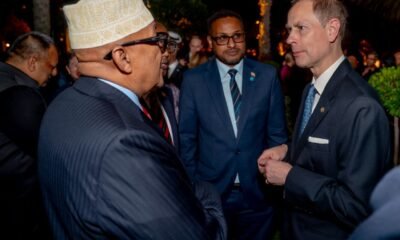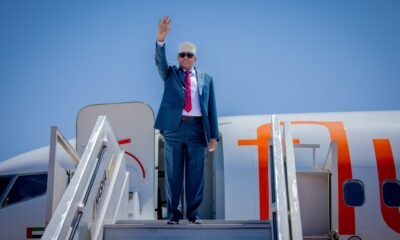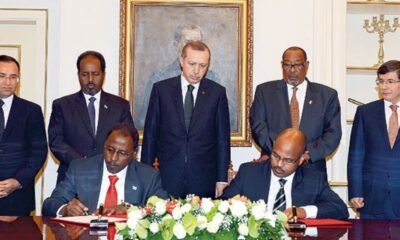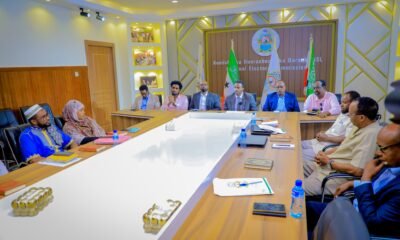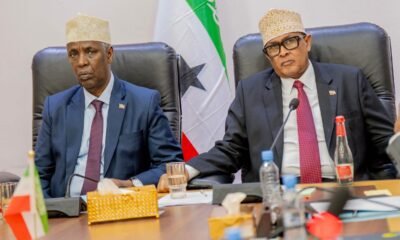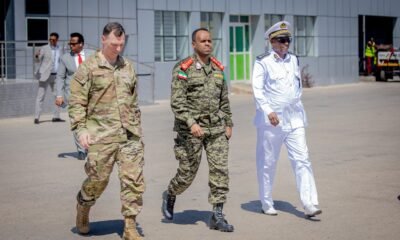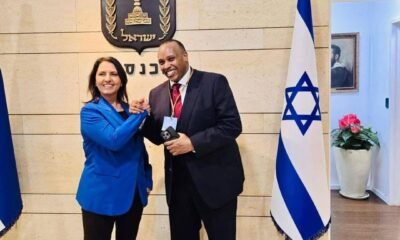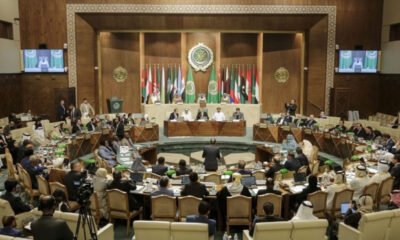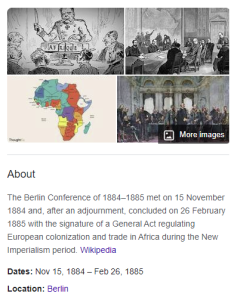Inspiration
The Architect of Progress: Mohamed Ali Bile’s Legacy in Somaliland
Mohamed Ali Bile – The Visionary Director General of the Presidency of the Republic of Somaliland
Since 2017, the Republic of Somaliland has seen unprecedented progress under the leadership of Mohamed Ali Bile, the Director General of the Presidency. A man of immense expertise and dedication, Bile’s contributions to the nation are as profound as they are numerous, embodying the spirit and ambition of Somaliland’s quest for recognition on the global stage.
Mohamed Ali Bile is not just a scholar but a paragon of effective leadership and visionary planning. With over two decades of experience working with prestigious organizations such as Creative Associates, UNICEF, UNESCO, the World Bank, and various governments, Bile’s extensive expertise in management and organizational behavior has been instrumental in driving forward President Muse Bihi’s developmental agenda.
Having spent five years teaching management, organizational behavior, and administration at universities, Bile’s academic background lays a solid foundation for his current role. His time in academia honed his skills in leadership and strategic planning, making him the ideal candidate for steering Somaliland through its transformative phase.
Under Bile’s stewardship, Somaliland has flourished. The sunlit roads that crisscross the nation, connecting east to west, are a testament to his relentless pursuit of infrastructure development. These roads are more than mere pathways; they symbolize the connectivity and unity that Bile and President Bihi envision for Somaliland. Each journey across these routes is a reminder of the quiet yet impactful work Bile has accomplished.
The capital city of Hargeisa stands as a beacon of Somaliland’s progress, adorned with beautiful buildings designed and overseen by Bile. His meticulous planning and execution have transformed the cityscape, turning Hargeisa into a vibrant hub that rivals any modern capital. These structures are not just buildings but landmarks of a nation’s resilience and ambition, rising from the ashes of conflict to a future of prosperity.
Bile’s legacy extends beyond roads and buildings. His involvement in various high-level positions within the United Nations and other international bodies underscores his global influence and the respect he commands on the world stage. His work with these organizations has not only brought valuable insights and practices to Somaliland but also highlighted the nation’s potential to international observers.
The name Mohamed Ali Bile evokes admiration and respect among Somalilanders. He is the man behind many of the critical projects initiated by President Muse Bihi, trusted implicitly by the president to deliver results. His quiet demeanor belies the magnitude of his achievements, making him a true hero of Somaliland.
One cannot speak of Bile without acknowledging his deep connection to the people of Somaliland. His presence on social media platforms like X, Facebook, and LinkedIn reflects his commitment to engaging with the community and keeping them informed of the nation’s progress. His transparency and accessibility have fostered a sense of trust and unity among Somalilanders, further solidifying his position as a beloved public figure.
Bile’s work is deeply rooted in the history and aspirations of Somaliland. The roads he built and the buildings he designed are reminders of the country’s journey towards independence and recognition. They are symbols of hope and progress, showcasing the potential that Somaliland holds under the right leadership.
As the Director General of the Presidency, Bile has not only implemented President Muse Bihi’s vision but also enriched it with his expertise and dedication. His projects have touched every corner of Somaliland, from the bustling urban centers to the serene rural landscapes, improving lives and fostering economic growth.
The people of Somaliland are profoundly grateful for President Muse Bihi’s decision to appoint Mohamed Ali Bile to such a pivotal role. His contributions have laid a strong foundation for future generations, ensuring that the nation continues to thrive and progress. Bile’s work is a source of national pride, inspiring hope and determination among Somalilanders as they strive for global recognition.
In conclusion, Mohamed Ali Bile’s impact on Somaliland is immeasurable. His visionary leadership, coupled with his extensive expertise and unwavering dedication, has transformed the nation. Under his guidance, Somaliland has taken significant strides towards becoming a recognized and respected member of the international community. Bile’s legacy will continue to inspire and shape the future of Somaliland for years to come.

Mohamed Ali Bile – The Visionary Director General of the Presidency of the Republic of Somaliland
EDITORIAL
Why President Irro’s Quiet Brilliance Unsettles the Noise-Makers

Since assuming office on December 12, 2024, Somaliland’s President Abdirahman Mohamed Abdullahi Irro has been a puzzle to many. His silence, his measured approach, and his refusal to engage in the theatrics of politics have left critics scrambling for attention. But here’s the truth: President Irro is not just another leader. He is a man of profound intellect, a seasoned diplomat, and a strategist who operates in the shadows of silence, far removed from the cacophony of social media pundits and armchair critics.
Let’s be blunt: Somaliland has never seen a leader like Irro. With years of diplomatic service in Moscow under the former Somali government and 12 years as Speaker of the Somaliland Parliament, his resume is unmatched. His experience is not just a footnote; it’s a masterclass in governance and diplomacy. Yet, instead of celebrating this rare asset, some Somalilanders—particularly the loud, uninformed voices on social media—are busy criticizing him for not oversharing his every move.
Here’s the uncomfortable truth: society fears deep thinkers. From Socrates to Galileo, history is littered with examples of brilliant minds ostracized for seeing what others couldn’t—or wouldn’t. Somaliland’s own poetic legend, Hadrawi, once said that intelligence is a curse, isolating those who see the world too clearly. President Irro embodies this truth. His intellectual superiority is not just a gift; it’s a mirror that reflects the limitations of those around him. And people don’t like what they see.
Psychologists call this the “mirror effect.” When someone stands next to a physically strong person, they admire their strength. When they meet someone wealthy, they might envy their success. But when they encounter someone intellectually superior, something primal kicks in. Intelligence challenges our core identity—our beliefs, our understanding of the world, and our sense of self. It forces us to confront our limitations, and human beings, by nature, will do almost anything to avoid that discomfort.
This is why President Irro’s quiet, deliberate approach unnerves so many. He doesn’t need to shout from the rooftops or flood social media with updates. He doesn’t need to prove himself to anyone. His actions speak louder than words. While critics scream for transparency, Irro is busy laying the groundwork for Somaliland’s recognition on the global stage. His diplomatic finesse, honed over decades, is a weapon that no other African leader can match.
But let’s not kid ourselves: the backlash against Irro isn’t about his policies or his vision. It’s about ego. Deep thinkers like him don’t just challenge ideas; they challenge egos. And in a world where confidence is often valued more than intelligence, his silence is mistaken for weakness. Charismatic but shallow leaders thrive because they tell people what they want to hear. Irro, on the other hand, forces us to think critically—and that’s a discomfort many would rather avoid.
The irony is that Somaliland needs a leader like Irro now more than ever. His intellectual depth, his diplomatic acumen, and his ability to see beyond the noise are precisely what the nation requires to navigate the complexities of international recognition. Yet, instead of rallying behind him, some are content to drown in their own ignorance, mistaking his silence for inaction.
To those critics, here’s a reality check: President Irro is not here to entertain you. He’s not here to feed your need for constant updates or validation. He’s here to lead—quietly, strategically, and effectively. And if that makes you uncomfortable, perhaps it’s time to look in the mirror and ask yourself why.
Somaliland has a rare gem in President Irro. It’s time we stop fearing his brilliance and start embracing it. After all, history doesn’t remember the noise-makers. It remembers the thinkers, the visionaries, and the silent strategists who changed the course of nations. Irro is one of them. The question is: are we ready to follow?
Inspiration
From the Streets of Ethiopia to the US Super League: Loza Abera’s Journey to Football Glory

From kicking a tattered football on the dusty streets of a small town in southern Ethiopia to signing a professional contract in the U.S., Loza Abera is living her dream. This month, she made history by becoming the first Ethiopian woman to sign with a U.S. professional football team, cementing her status as a trailblazer for women in Ethiopian sports.
“I am thrilled,” Loza exclaimed during an emotional interview with VOA’s Horn of Africa Service. “I used to tell my friends, ‘I will be the first woman international player.’ No one believed me then … but this was always my dream.”
Loza’s journey, from the fields of Durame city to the international stage, isn’t just a personal triumph; it’s an inspiring story that resonates with countless Ethiopians who dare to dream big.
Earlier this month, DC Power, Washington’s new entry in the Division 1 U.S. women’s football league, announced the groundbreaking signing of Loza Abera, the captain of Ethiopia’s Women’s National Team. This moment was more than just a contract—it was a milestone. Loza became the first Ethiopian-born woman to join a U.S. top-tier football league, making her a symbol of hope for aspiring athletes in her homeland.
But for Loza, this achievement carries a weight beyond personal glory. “I thank God for helping me reach here,” she said, her voice filled with gratitude. “I understand I have a responsibility to inspire other Ethiopians.”
Loza’s love affair with football began early. Born in Durame, a city 320 kilometers south of Addis Ababa, Loza was drawn to the field across from her house, where she began playing at age five. “That field shaped me,” she recalled. “It was right in front of our home. Whenever I was outside, the field was always there.”
At just 15, Loza signed her first contract with Hawassa Kenema, a local club in southern Ethiopia. Back then, girls playing football in her city was a rarity. “Even though a few women came before me, it wasn’t common or accepted,” she explained. But when the Ethiopia National Football Federation directed men’s teams to create parallel women’s teams, Hawassa Kenema opened its doors to female players. Loza seized the opportunity.
In 2013, after just two years with the club, Loza’s talent earned her a spot on the Ethiopian national team, where she quickly became a rising star.
Loza’s path wasn’t without its obstacles. Before landing her groundbreaking deal with DC Power, she had stints in Sweden and Malta that didn’t go as planned, forcing her to return to Ethiopia. But Loza refused to give up on her dream.
In 2019 and 2020, while playing in Malta, she met U.S.-based football agent Mezmure Dawit Mekuria, who became instrumental in her journey to the U.S. “The discussion took six months,” Loza revealed. “When teams called for tryouts, he used his network to get me in, including tryouts in Miami, Orlando, and New York.”
By January 2024, Loza was waiting to hear back from her tryouts when Mezmure introduced her to the Virginia Marauders FC. In the summer of 2024, she scored 10 goals in 11 games, catching the eye of the coaches at DC Power and sealing her historic signing.
For Mezmure Dawit Mekuria, Loza’s journey is just the beginning. “She’s a hardworking professional with a strong mindset,” he said. “Talent without hard work is nothing, and as my project continues to help Ethiopians become professionals, more players will join the U.S. leagues soon.”
For Loza, playing in Washington comes with an added emotional boost—the large Ethiopian community in the U.S. capital. “It’s overwhelming to represent Ethiopia,” she said, her voice full of pride. “Seeing first-generation Ethiopian Americans come to my games is emotional. They’re striving to achieve their dreams, just as I did.”
Looking ahead, Loza’s goals are simple but ambitious. “I want to score as many goals as possible and win cups with the club,” she declared. But for the young girl who once played barefoot on a field in Ethiopia, her journey is already a testament to perseverance and the power of dreaming big.
Loza Abera’s story isn’t just a tale of football success—it’s a story of hope, inspiration, and breaking barriers. As she steps onto the U.S. football stage, she carries the dreams of millions with her, proving that with determination, anything is possible.
Her dream has come true, and she’s just getting started.
Editor's Pick
Westerville School Board Set to Appoint First Somali Muslim Woman, Anisa Liban, to Vacant Seat

Anisa Liban, a leader in central Ohio’s immigrant community, to make history as the first Somali Muslim woman on the Westerville Board of Education.
The Westerville Board of Education is preparing to welcome Anisa Liban as its newest member, marking a significant milestone for representation in the district. Liban, a respected leader in central Ohio’s immigrant and refugee communities, is set to become the first Somali Muslim woman to serve on the board, following the resignation of long-time board member Nancy Nestor-Baker, who stepped down after 25 years of service on August 31.
Liban’s appointment is expected to be officially confirmed and sworn in at the September 23rd Board meeting. Once in place, she will serve the remainder of Nestor-Baker’s term, which runs through December 31, 2025.
Liban’s appointment is seen as a momentous step for Westerville, a district that boasts a large Somali population. As the CEO of Somali Community Link, a nonprofit organization in Columbus that supports immigrants and refugees, Liban brings a wealth of experience and perspective that could significantly impact the district’s policies, particularly regarding its growing immigrant student population.
“As a mother of a young child and a leader in the immigrant community, I’m eager to support the work of the Board and address the needs of all students, especially those from underserved backgrounds,” Liban said. Her work at Somali Community Link, combined with her consulting role at Immigro Consulting and involvement in local nonprofits, showcases her deep commitment to uplifting immigrant families and ensuring they have the support necessary to thrive in the U.S. education system.
Board President Kristy Meyer expressed enthusiasm for Liban’s appointment, underscoring how her unique background in policy, advocacy, and community leadership will enhance the Board’s ability to serve a diverse student body. “Our district is home to a vibrant Somali community, and Anisa’s appointment ensures that our board better reflects the full range of voices in Westerville,” Meyer said. “We’re excited for the new perspectives and leadership she will bring.”
Liban’s trailblazing role as the first Somali Muslim woman on the Board is not just a symbolic victory—it signals a broader commitment to inclusivity and addressing the specific challenges faced by immigrant and refugee students in the district. Liban’s work with the John Glenn College of Public Affairs’ POWER Initiative and as a board member for the nonprofit Our Helpers highlights her expertise in policy and advocacy, crucial skills as the district navigates its future.
The appointment of Liban marks a new chapter for Westerville schools, reinforcing the importance of representation and the power of diverse voices in shaping educational policy. As Liban steps into her new role, many hope her leadership will create lasting change, especially for the district’s growing immigrant population, ensuring that every student, no matter their background, has the opportunity to succeed.
Inspiration
Edna Adan: A Beacon of Brilliance and Humanity
Edna Adan: The Unparalleled Heroine Transforming Lives

Discover the extraordinary journey of Edna Adan, hailed as one of the most influential people today. Her relentless dedication to healthcare, education, and human rights has transformed countless lives and inspired individuals worldwide.

Edna Adan stands as one of the greatest living individuals on Earth today, her life a testament to unwavering courage, relentless determination, and profound humanity. Born into the distinguished household of Doctor Adan Ismail in a Somali society that confined women to the home, Edna was determined to change the narrative for herself and every Somaliland girl. Her memoir, A Woman of Firsts, beautifully captures this extraordinary journey.

From a young age, Edna was conscious of her differences. Unlike other girls, she sought the company of boys, joined their games, attended classes with them, and accompanied her father, the first Somali medical doctor, on his rounds. Witnessing her father’s dedication to treating the sick and experiencing the loss of two siblings in infancy fueled her lifelong dreams: to pursue a medical career and establish a world-class hospital bearing her father’s name. These dreams became a reality, but the path was fraught with challenges.
At her father’s behest, teenage Edna returned home to become a midwife in newly independent Somaliland. She was the first Somali woman to hold such a position. The male-dominated government, unsure of her role or salary, left her unpaid for nearly two years. Despite this, Edna’s commitment to her people kept her steadfast in her duty, weathering the storm against all odds.

Edna’s personal life was equally tumultuous. She married Mohamed Egal, a prominent Somali politician, and maintained her professional integrity despite her husband’s political appointments and subsequent imprisonments by the military junta led by Siad Barre. Her resilience through these personal and political upheavals is nothing short of miraculous, as detailed in her memoir.
A significant aspect of Edna’s legacy is her campaign against female genital mutilation (FGM). She first encountered FGM in her formative years and lived with its physical and emotional scars. Understanding its traumatic impact and lack of basis in Islam, Edna courageously addressed the taboo topic, leading a global campaign against the practice. While FGM persists, her advocacy has significantly reduced its prevalence, particularly in Somaliland communities.

Edna’s most remarkable achievement is perhaps the establishment of the Edna Adan Hospital. Amidst the chaos of the Somali Civil War and the fall of Siad Barre’s regime, Edna’s unwavering determination led to the construction of a hospital on land previously used for executions by the military regime. This “tall white hospital,” as she envisioned, became a reality through her sheer willpower and limited resources. It stands today as a testament to her commitment to improving maternal and child healthcare.

Edna Adan’s story is a beacon of inspiration, particularly for young Somalilanders and girls. She transformed a profession deemed inappropriate for women into a respected and aspirational career. Many Somaliland girls now dream of following in her footsteps, and Edna continues to support their aspirations through training and mentorship. Her life exemplifies that willpower and altruism yield profound rewards for those who live by these principles.

Despite political persecution and a fragmented life, Edna gave equal care to all, friend and foe alike. Though she never had children of her own, she is revered as a mother to many. The Huffington Post dubbed her “The Muslim Mother Teresa,” but this title does not fully capture her uniqueness. Edna Adan Ismail is an unparalleled figure, singular in her contributions and impact.
Edna’s memoir is a must-read, deserving of a prominent place on every bookshelf. It is a source of immense inspiration, particularly for young Somalilanders. Future editions could benefit from subtitles for each chapter, enhancing navigation for readers and researchers. Additionally, highlighting that royalties from the book are donated to the Edna Adan Hospital would encourage sales and further support her mission to save lives.

Edna Adan embodies the dedication of her father. While her father made do with available resources, Edna’s unyielding spirit ensured she had things her way. Her courage and determination are a testament to her unique brand of ‘craziness’ that brought her dreams to life. This same tenacity made her the first professional Somali midwife, the first Somali to hold a high position in the UN, the first to openly campaign against FGM in Somaliland, the founder of the first individual-run hospital, and now, the author of A Woman of Firsts.

Her life’s work is a clarion call for all of us to embrace a similar spirit. Edna Adan’s story is one of unparalleled greatness, demonstrating that true impact comes from a place of relentless passion and unwavering commitment.
Despite the global recognition, including being the first African woman to win the prestigious Templeton Prize in 2023, valued at nearly $1.4 million, Edna Adan’s extraordinary contributions have not been fully honored by her own country, Somaliland. This significant accolade acknowledges her relentless efforts to improve women’s health and combat female genital mutilation (FGM). However, despite her international acclaim, one glaring question remains: why has Somaliland failed to honor its own heroine?

Born in 1937 in Hargeisa, the capital of what was then British Somaliland, Edna Adan’s journey has been nothing short of extraordinary. Her father, a prominent doctor, ensured she received an education, a rarity for girls at the time. This early exposure to medicine and education set her on a path to become Somaliland’s first professionally trained nurse-midwife and a leading figure in public health.

Edna Adan’s impact is most profoundly felt through the Edna Adan Maternity Hospital, established in 2002. Built on a former garbage dump, this hospital has drastically reduced maternal and infant mortality rates in Somaliland, a region with a fragile healthcare system. The hospital has delivered over 30,000 babies and trained more than 4,000 healthcare professionals, predominantly women, ensuring a lasting legacy of skilled medical practitioners in East Africa.

Beyond the walls of her hospital, Edna Adan has served as Somaliland’s Minister of Social Affairs and Foreign Minister, using her platform to advocate for women’s rights and against FGM. Despite facing severe backlash and threats, she has courageously spoken out against this harmful practice, educating and mobilizing both women and men. Her efforts have significantly raised awareness and led to policy changes in Somaliland and beyond.
The Templeton Prize is not the only recognition Edna Adan has received. Her accolades include the French Legion of Honour and numerous humanitarian awards, all testament to her tireless dedication to improving women’s health and rights. However, Somaliland’s government and people have not adequately honored her immense contributions. Despite her relentless work to improve the lives of Somalilanders and her role in promoting the region globally, she has not received the highest honors from her own country.
As Somaliland aspires for international recognition, it must first honor its own heroes. Edna Adan Ismail’s story is one of relentless pursuit of better healthcare and women’s rights, rooted in profound personal sacrifice and unwavering faith. She exemplifies the spirit of Somaliland—a beacon of hope, resilience, and unwavering determination.
Somaliland’s government must acknowledge and celebrate Edna Adan’s unparalleled contributions. Her efforts have not only saved countless lives but also elevated Somaliland’s standing on the global stage. By failing to recognize her work adequately, Somaliland risks undermining the very values of dignity and resilience that Edna Adan embodies.

As Edna Adan continues her global advocacy, it is high time for Somaliland to bestow upon her the highest honors she so richly deserves. Her legacy is not just one of medical and social advancement but also a testament to what one individual’s determination can achieve. By celebrating Edna Adan, Somaliland can demonstrate its commitment to the values she has tirelessly championed and inspire future generations to continue her vital work.

Dr. Edna Adan Ismail’s work has transformed the lives of many women, not just in Somaliland but across the globe. Her relentless pursuit of better healthcare, her fight against FGM, and her dedication to women’s rights are a beacon of hope and resilience. It is a travesty that while the world honors her, Somaliland remains silent. It is time for Somaliland to wake up and recognize the immense contributions of its own heroine.
Inspiration
DP World Commits $3 Billion to Boost African Port Infrastructure by 2029
DP World announces a $3 billion investment plan to enhance port infrastructure across Africa by 2029, aiming to meet growing demand for critical mineral exports and improve logistics efficiency.
DP World, a global leader in port operations and logistics, has unveiled an ambitious plan to invest $3 billion over the next three to five years in new port infrastructure across Africa. This strategic move aims to capitalize on the continent’s long-term growth potential and surging demand for critical mineral exports, despite current economic challenges.
Mohammed Akoojee, CEO and Managing Director for Sub-Saharan Africa at DP World, highlighted the high cost of logistics and supply chain operations in Africa compared to other global markets. This disparity presents a significant opportunity for DP World to enhance its footprint on the continent. “The cost of logistics and supply chain across Africa is very high relative to other global markets,” Akoojee said during an interview on Bloomberg Television. This investment is part of DP World’s broader strategy to address these inefficiencies and support Africa’s economic development.
DP World is currently expanding its operations in Dar es Salaam, Tanzania, and has conducted assessments of ports in South Africa and Kenya for potential investment. The International Monetary Fund (IMF) projects that eight of the world’s fifteen fastest-growing economies will be in Africa this year, drawing substantial interest from global companies, including DP World.
Africa’s burgeoning market for critical minerals such as copper from Zambia and the Democratic Republic of Congo (DRC) is a key driver behind the need for enhanced logistics capacity. “We’ve seen demand increasing over the last few years, largely driven by the whole electrification drive globally and the demand for commodities like cobalt, lithium,” Akoojee explained.
DP World’s African division employs 27,000 workers and encompasses ports, terminals, logistics, and supply chain businesses. Despite losing a bid to partner with South Africa’s Transnet SOC Ltd. to develop the continent’s largest container port, DP World remains undeterred. The company continues to explore opportunities as South Africa progresses with the partial privatization of Transnet. Akoojee expressed ongoing interest, stating, “We remain interested in those opportunities.”
Moreover, DP World is eyeing the port of Lamu in Kenya, which is undergoing a privatization process. The company’s persistent interest in these projects underscores its commitment to expanding its presence and enhancing infrastructure across Africa.
Akoojee emphasized the importance of viewing Africa’s potential through a long-term lens rather than focusing solely on short-term macroeconomic conditions. Despite challenges such as accelerating inflation, depreciating currencies, and high borrowing costs, DP World is optimistic about the continent’s future. “It’s a cycle and it certainly hasn’t impacted our appetite for growth on the continent,” Akoojee stated. “We’re still investing.”
In conclusion, DP World’s $3 billion investment in African port infrastructure represents a significant commitment to the continent’s economic growth and development. By improving logistics and supply chain efficiency, the company aims to support Africa’s burgeoning mineral export market and broader economic potential. This strategic initiative not only reinforces DP World’s role as a pivotal player in global logistics but also highlights the long-term investment opportunities that Africa offers despite its current economic hurdles.
Inspiration
President Bihi and the SNM Unit ‘Hargaha iyo Saamaha’
Inspiration and Leadership: The Untold Story of Somaliland’s President
In the turbulent years of the Somali National Movement (SNM) struggle, certain units and leaders emerged that would leave an indelible mark on the history of Somaliland. Among these were the distinguished SNM unit known as “Hargaha iyo Saamaha” and its notable figures, such as Mohamed Elmi Galaan and Mohamed Hassan (Gacma-dhere). This article delves into the inspiring journey of Muse Bihi, his role in the SNM, and the formidable unit he helped shape.
The Genesis of Hargaha iyo Saamaha
The unit known as “Hargaha iyo Saamaha” was a product of necessity and strategic vision within the SNM. Comprising 200 men, this unit was formed from soldiers who had been identified as ill-disciplined and separated from various SNM camps, including Jigjiga, Diridibaa, and others. These soldiers underwent rehabilitation and rigorous training at the Aware camp starting in July 1985, under the guidance of two brave men, Mohamed Elmi Galaan and Mohamed Hassan (Gacma-dhere). The training period, which lasted until December 1985, was crucial in transforming these soldiers into a disciplined and effective fighting force.
Origins of the Name
The unit’s unique name, “Hargaha iyo Saamaha,” was coined by Nuh Sh Muhammed Yar, one of the most influential figures of the time. This name, “Hargaha iyo Saamaha,” symbolized the tough and resilient nature of the unit, reflecting their readiness to withstand any challenges and hardships.
Muse Bihi Abdi: A Transformative Leader
The story of Muse Bihi Abdi’s involvement with the SNM begins in 1985, a pivotal year marked by his decision to join the movement. Muse Bihi’s arrival brought significant changes, particularly within his tribe, which saw a surge in support for the SNM cause. His influence was instrumental in rallying his community to join the SNM forces, thus strengthening the movement’s ranks.
Muse Bihi, a former pilot and high-ranking officer in Siyad Barre’s military, brought with him a wealth of experience and a strict sense of discipline. His transition from the government military to the SNM ranks was not just a personal transformation but also a catalyst for change within the SNM itself. His military background and leadership skills quickly earned him a reputation as a formidable and respected figure.
Transforming the SNM: Discipline and Strategy
Muse Bihi’s impact on the SNM was profound. Upon joining the movement, he was quick to address issues of discipline and morale within the ranks. According to Mohamed Ilmi Galaan, an SNM officer and the author of a comprehensive book on the SNM, Muse Bihi was instrumental in turning undisciplined soldiers into a well-organized and effective fighting force. He was known for his harsh but fair approach, imprisoning more than 20 soldiers who violated the movement’s code of conduct. This tough stance on discipline ensured that the SNM troops became more cohesive and battle-ready.
Spies and Saboteurs: The Internal Struggle
The journey of “Hargaha iyo Saamaha” was not without its challenges. The unit faced internal threats, particularly from spies who infiltrated their ranks and relayed information to Siyad Barre’s forces. These spies managed to escape during training and provided valuable intelligence to the enemy, which added another layer of complexity to the SNM’s struggle.
Despite these setbacks, the unit persevered and became known for their resilience and effectiveness. The presence of spies only strengthened the resolve of the remaining soldiers, who were determined to fight for their cause despite the risks.
Muse Bihi’s Legacy: From SNM Officer to President
Today, Muse Bihi Abdi stands as a symbol of Somaliland’s resilience and determination. His journey from a high-ranking officer in Siyad Barre’s military to a leading figure in the SNM, and eventually to the presidency of Somaliland, is a testament to his unwavering commitment to his country. Muse Bihi’s leadership during the SNM struggle and his subsequent role in leading Somaliland on the global stage highlight his enduring dedication to his people and his homeland.
Somaliland’s quest for international recognition has been a long and arduous journey. Under Muse Bihi’s leadership, significant strides have been made towards achieving this goal. His efforts in promoting Somaliland’s cause on the global stage have not gone unnoticed, earning him respect and admiration both domestically and internationally.
The Call for Recognition: Honoring a Hero
While Muse Bihi’s contributions to Somaliland are widely recognized internationally, there remains a need for greater acknowledgment within his homeland. Somaliland must honor its heroes, and Muse Bihi Abdi is certainly one of them. His tireless work for the betterment of Somaliland and his pivotal role in the SNM deserve the highest accolades.
Somaliland’s government and its people must recognize the sacrifices and achievements of Muse Bihi and others like him who have dedicated their lives to the country’s cause. As Somaliland continues its journey towards full international recognition, it is imperative that the contributions of its leaders and heroes are celebrated and honored.
Conclusion
The story of Muse Bihi Abdi and the SNM unit “Hargaha iyo Saamaha” is one of courage, resilience, and unwavering dedication to the cause of Somaliland. As the country continues to strive for international recognition, the legacy of its leaders, particularly Muse Bihi, serves as a powerful reminder of the sacrifices made and the enduring spirit of the Somaliland people.
Honoring these heroes is not just about acknowledging their past contributions but also about inspiring future generations to continue the fight for Somaliland’s rightful place on the global stage. Muse Bihi Abdi’s journey from an SNM officer to the President of Somaliland is a beacon of hope and a testament to what can be achieved through determination, discipline, and leadership.
References
- Mohamed Ilmi Galaan, SNM Officer and Author of the SNM Book
- Interviews and personal accounts from SNM veterans and historians
- Somaliland government archives and records
Corruption
The Light of Somaliland: A Tale of Hidden Dark Forces and Mysterious Illuminations
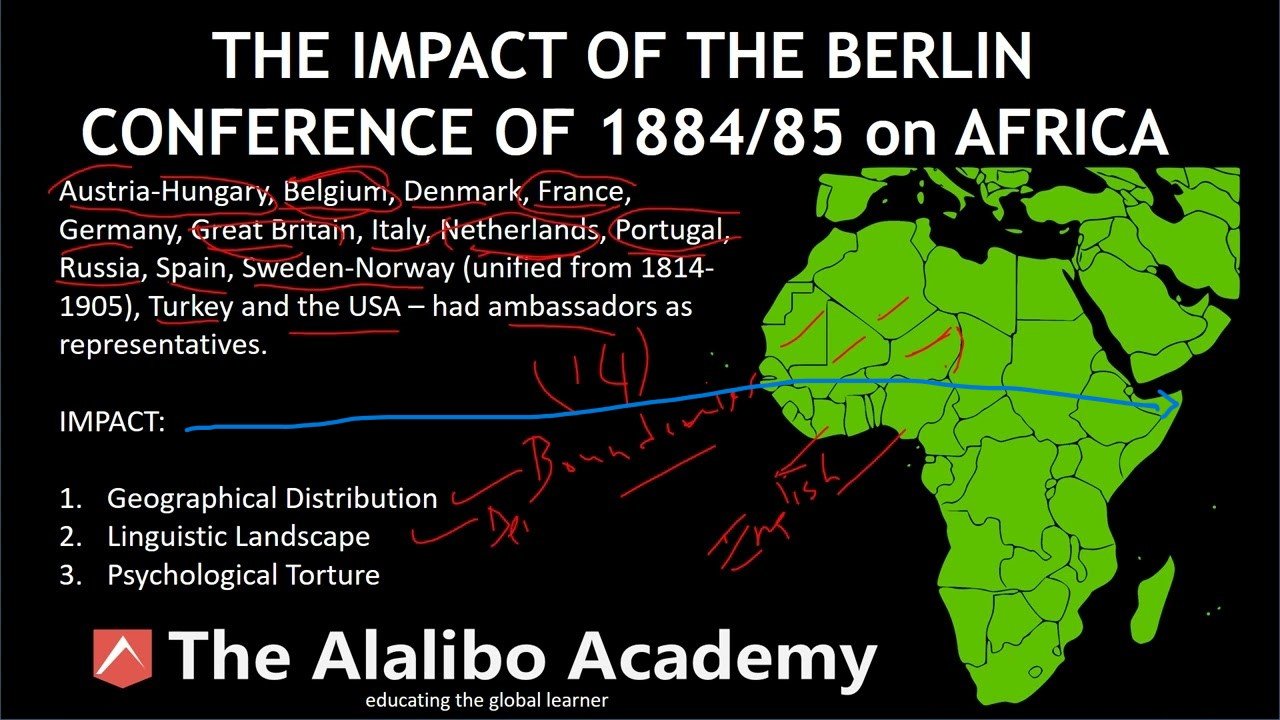
Discover the hidden battle against a mysterious light in Somaliland that has sparked international intrigue and a legacy of conflict. Unravel the story behind the fight for this enigmatic region.
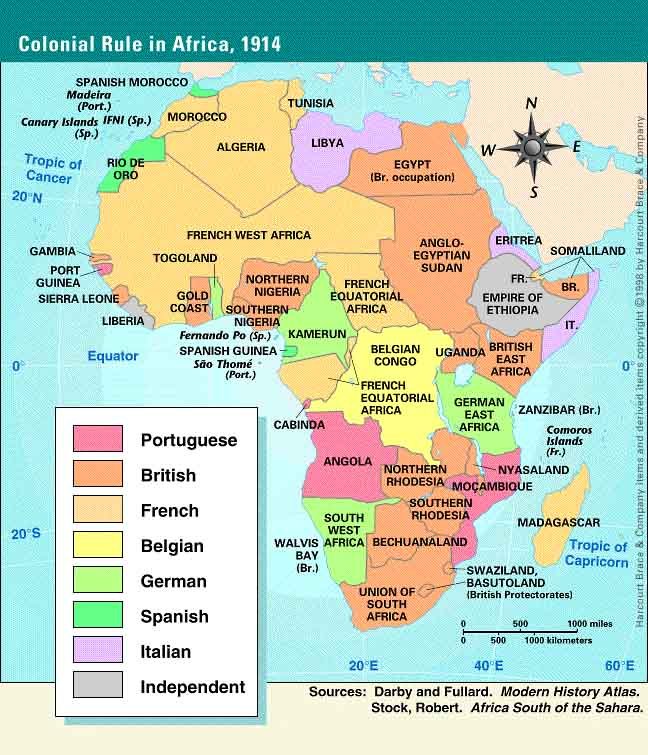
By Kasim Abdulkadir:
In the rugged mountains of Sanaag, where the air hums with ancient secrets, lies Somaliland—a land shrouded in mystery and whispered legends. For centuries, this region has been the focal point of a clandestine struggle between forces both seen and unseen, driven by an enigmatic light that many believe holds untold power.
The Genesis of a Secret War
It was in 1884, amid the chaotic fervor of the Berlin Conference, that the seeds of this conflict were sown. European powers gathered to carve up the African continent, but beneath the diplomatic veneer, darker agendas were at play. A black map, stark with two glaring white areas, was discreetly circulated among the elite. These regions were Somaliland and Shaam in the Middle East—zones marked by a mysterious light that Lucifer himself, the great fallen angel, declared a threat to his sinister designs.
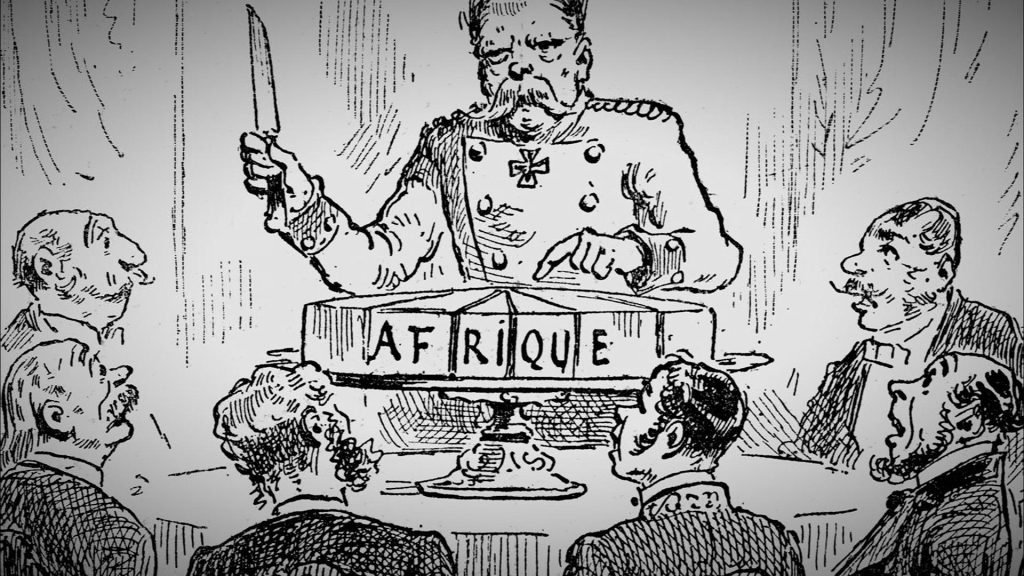
Lucifer, seated in the shadows of that fateful meeting, whispered to his followers. “These lights in Somaliland and Shaam,” he warned, “must be extinguished. They are the beacons of hope and resistance against our dominion. Steal their minds, corrupt their bodies, and sow endless discord.”
The Unseen Battles
Decades passed, and the struggle for Somaliland’s light continued to rage, often unseen by the world. The great powers—Britain, France, Germany—each took their turn, manipulating conflicts and fostering divisions. Yet, despite their efforts, Somaliland stood resilient, its light unwavering.
Modern efforts saw new tactics. The shadowy forces behind global powers instigated wars in Lasanod, hoping to draw in international peacekeepers and destabilize the region from within. The goal? To change the very fabric of Somaliland, starting with its symbol—the flag that carried the light. “Convince them,” they schemed, “that recognition will come with changing the text and color of their flag. Anything to dim that light.”
The Dark Plans Unveiled
From the halls of power to the streets of Hargeisa and Burco, the conspiracy spread. Khat, a local drug, was laced with toxic chemicals, its consumption encouraged to poison the minds and bodies of Somaliland’s people. Women were particularly targeted, told that khat would prevent childbirth, aiming to cripple the nation’s future.
Meanwhile, Somalis imprisoned abroad were slated for a dubious return, a plan set for the middle of 2025, aiming to introduce chaos. Free alcohol and hashish for those sickened by tainted khat became the norm, another tool to erode the society from within.
The Battle for Souls
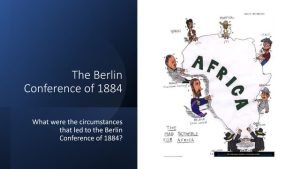
Religious scholars were not spared. They were lavishly bribed, distracted with wealth and divided against one another, ensuring perpetual conflict. The Qur’an, a source of solace and guidance, was twisted into a tool of division, with teachers paid to mislead the youth.
The Unyielding Light
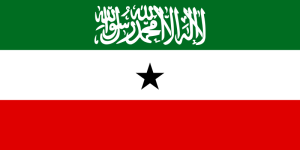
Yet, despite these relentless efforts, the light of Somaliland persists. It is a testament to the indomitable spirit of its people—a beacon that refuses to be dimmed. As new generations rise, aware of the dark forces at play, they continue to resist, guarding their heritage and the mysterious light that defines their land.
Stay tuned for the next installment of this saga, where the intricate web of deception deepens and the fight for the soul of Somaliland takes an even more perilous turn. Will the light endure, or will the darkness finally prevail? The story is far from over.
Inspiration
A Message of Hope and Inspiration for Somaliland’s Youth
Writing Your Own Story, Defying the Odds, and Embracing Possibility
BY WARYATV INSPIRATION TEAM:

Dear Somaliland’s Youth,
In the hustle and bustle of life, it’s easy to get lost in a sea of doubts, fears, and uncertainties. We find ourselves pondering questions that seem to have no answers, questioning our worth, our abilities, and our potential. But what if I told you that within every doubt lies an opportunity, within every fear lies a source of strength, and within every uncertainty lies the potential for greatness?
What if, instead of succumbing to the what-ifs, we dared to rewrite our stories, to defy the odds, and to embrace the journey ahead with courage and determination? What if we stopped waiting for validation from others and started believing in ourselves, in our dreams, and in our ability to make a difference?
Life is a journey, a series of moments woven together to create the tapestry of our existence. Each day presents us with new challenges, new opportunities, and new possibilities. And while the road may be long and winding, and the path may be fraught with obstacles, it is ours to traverse, ours to conquer, and ours to shape.
As the architect of your destiny, you hold the power to transform your dreams into reality, your aspirations into achievements, and your doubts into triumphs. It’s not about where you come from or where you’ve been, but where you’re going and who you’re becoming along the way.
So, if you’ve ever felt like an underdog, if you’ve ever doubted your abilities, if you’ve ever questioned your worth, know that you are not alone. Many of the most successful individuals in history started from nothing, faced countless setbacks, and overcame seemingly insurmountable odds to achieve their dreams.
But what set them apart was not their circumstances or their background, but their unwavering belief in themselves, their relentless determination, and their refusal to settle for anything less than their best.
You see, success is not reserved for the privileged few or the lucky ones; it is earned through hard work, perseverance, and a willingness to embrace failure as a stepping stone to success.
So, my dear friends, as you embark on this journey called life, remember that you are the author of your story, the master of your fate, and the captain of your soul. Dare to dream big, dare to take risks, and dare to live life on your own terms.
And when the road ahead seems daunting, and the path seems uncertain, remember that within you lies the power to overcome any obstacle, to defy any expectation, and to create the life you’ve always imagined.
Believe in yourself, trust in your abilities, and never underestimate the power of your dreams. For it is in daring to dream that we discover our true potential, our true purpose, and our true worth.
So go forth, my friends, and write your own story—one filled with passion, purpose, and possibility. And remember, the journey is just as important as the destination, so embrace every moment, seize every opportunity, and make every day count.
With love and encouragement,
WARYATV INSPIRATION TEAM
-

 Minnesota2 months ago
Minnesota2 months agoFraud Allegations Close In on Somalia’s Top Diplomats
-

 Middle East2 months ago
Middle East2 months agoTurkey’s Syria Radar Plan Triggers Israeli Red Lines
-

 Editor's Pick2 months ago
Editor's Pick2 months agoWhy India Is Poised to Become the Next Major Power to Recognize Somaliland
-

 ASSESSMENTS2 months ago
ASSESSMENTS2 months agoSomalia’s Risky Pact with Pakistan Sparks Regional Alarm
-

 Analysis2 months ago
Analysis2 months agoTurkey’s Expanding Footprint in Somalia Draws Parliamentary Scrutiny
-

 Analysis2 months ago
Analysis2 months agoRED SEA SHOCKER: TURKEY’S PROXY STATE RISES—AND ISRAEL IS WATCHING
-

 Somaliland1 month ago
Somaliland1 month agoF-35s Over Hargeisa: The Night Somaliland’s Sovereignty Went Supersonic
-

 Somalia2 months ago
Somalia2 months agoIs Somalia’s Oil the Price of Loyalty to Turkey? MP Blows Whistle on Explosive Oil Deal








